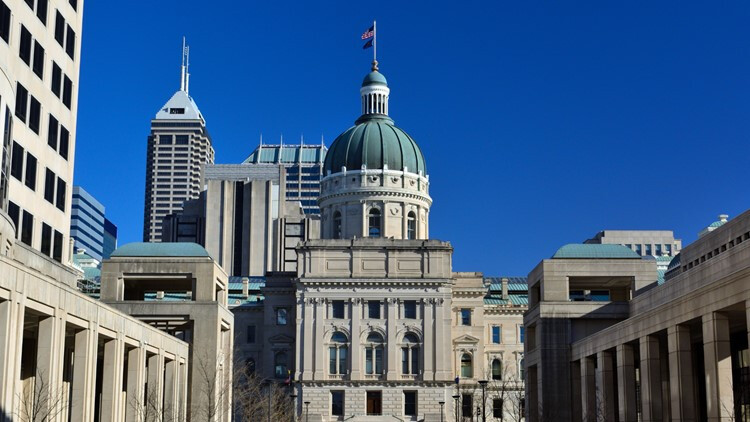
INDIANAPOLIS – A new property tax bill (SB1) introduced during the 2025 Indiana General Assembly session is poised to significantly impact how schools and local governments across the state are funded, drawing ongoing criticism and concerns from Hoosiers and officials alike.
Having passed the House, SB1 has now returned to the Senate for a final vote before potentially heading to Governor Eric Holcomb's desk for his signature to become law.
The bill is projected to bring substantial changes across various aspects of life for Indiana residents, including homeowners, businesses, renters, local governments, and public schools. The core of SB1 involves a significant expansion of property tax relief and the establishment of a cap on future property tax increases.
However, this property tax relief comes with the implication of a considerable reduction in revenue for local governments and schools, which heavily rely on property taxes for funding. To address this financial gap, the bill allows counties to adjust their maximum local income tax rate up to 2.9%, while cities and towns could impose a local income tax up to 1.2%. This suggests that while property tax burdens might decrease, local governments could seek to offset revenue losses through income tax increases.
Schools would have the option to seek additional funding through local referendums, but a new provision stipulates that funds secured through referendums passed after 2027 must be shared with charter schools.
An in-depth analysis by Indianapolis-based 13WTHR, a sister station of WHAS11, reveals that SB1 has been a constant source of debate throughout the legislative process. Initial drafts aimed for a substantial $1 billion tax cut in the first year, but the Senate shifted focus to limiting property tax growth. However, facing a potential veto from Governor Holcomb, the House passed an amended version that included tax relief.
Governor Holcomb issued a statement last week, saying, "We've reached an agreement" after the successful adoption of Amendment 36, authored by Representative Jeff Thompson (R-Danville). The amended bill now awaits final approval from the Senate. Senate Republican leadership indicated last week that the bill could be put to a vote on Monday, though this decision rests with Senator Travis Holdman (R-Southport), the bill's author.
Meanwhile, Indiana Lieutenant Governor Suzanne Crouch has voiced strong criticism of SB1 and urged Governor Holcomb to veto it. She argued that "no one understands this bill," even citing her own lack of complete understanding as a reason why it should not become law.
In social media posts, Lt. Governor Crouch stated that she has been receiving numerous calls from Hoosiers and government officials regarding the bill. She urged Governor Holcomb to veto SB1 and call a special session to "demand the legislature pass a bill that average Hoosiers can understand without hiring an army of lawyers and accountants."
Further fueling the controversy, SB1 includes a provision that would cap property tax levies for fire territories established after January 1, 2025, at 40 cents. The Jeffersonville/Utica Fire Territory, approved by both the Jeffersonville City Council and the Utica Township Fire Protection District Board, currently levies a cumulative 62 cents.
Susan Cowen of Baker Tilly, who conducted the financial analysis for the fire territory, confirmed that if SB1 passes in its current form, the fire territory would not receive approval from the Indiana Department of Local Government Finance.
Key Terms:
Property Tax: A tax levied on the owners of real estate, such as land and buildings. It is a primary source of revenue for local governments and educational institutions. Tax rates are determined based on the value of the property and vary by region.
Local Income Tax: An income tax imposed by local governments on their residents, used as a means to secure local funding. Tax rates and collection methods can vary by region.
Referendum: A vote in which local residents are asked to approve or reject a specific proposal, such as additional tax levies to fund schools.
Charter School: A publicly funded school that operates independently of the traditional public school system, with greater autonomy in its operations.
Fire Territory: An administrative district established to provide fire services to a specific area. Residents within the territory may be subject to taxes to fund these services.
Indiana Department of Local Government Finance: The state agency in Indiana that oversees the financial operations of local governments and property tax-related matters.
The final outcome of SB1 and its impact on the economic burden of Indiana residents and the provision of local community services remain to be seen.
[Copyright (c) Global Economic Times. All Rights Reserved.]






























